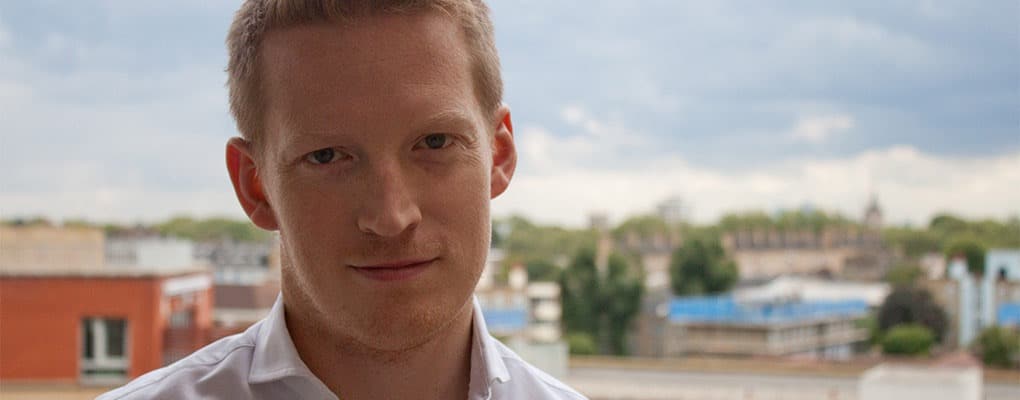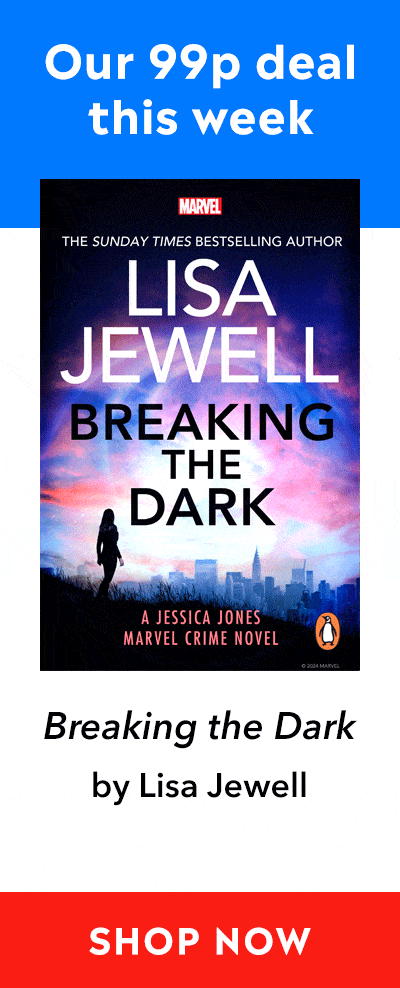Features
An Interview with Rod Reynolds
Rod Reynolds is the author of the debut novel The Dark Inside, a compelling and pacy thriller loosely based on true events.
Having studied for a masters in crime writing at London’s City University, Rod was the first to obtain an agent and publishing deal – before even completing the course.
With his first thriller, The Dark Inside, appealing to fans of RJ Ellory, Tom Franklin and True Detective, we wanted to find out a bit more about Rod himself, his route to publication and learning to write crime! Read on for our interview…
Can you tell us a little bit about your debut thriller, The Dark Inside?
The Dark Inside is set in 1946 and follows a disgraced New York City reporter, Charlie Yates, as he’s sent to cover a pair of brutal attacks in a small town on the Texas/Arkansas border. The attacks have left three dead already, and one woman severely traumatised.
Charlie arrives to find a town locked-down in fear. The police are hostile, the local hacks secretive, and the killings brutal. Charlie has his own demons to deal with, and at first wants nothing to do with the story – but once he sees the effect the murders are having, his conscience won’t let him ditch it. He quickly senses there’s more to the attacks than anyone’s willing to admit – and as he investigates further, he finds his pursuit of the truth could cost him everything.
The book is loosely inspired by the real-life serial killer case known as the Texarkana Moonlight Murders and is very much in the noir tradition. Early reviews have been very positive, and I was overjoyed to have my writing evoke comparisons to the likes of Raymond Chandler and James Lee Burke.
What attracts you to the thriller genre?
As I writer, I strongly believe you can only write what holds your interest – and I’ve always preferred the crime/thriller genre above all else when choosing what I want to read.
It’s difficult to narrow down what attracts me to the genre as a reader, because it covers such a breadth of sub-genres and authors, many of which offer different reading experiences. I enjoy and appreciate James Ellroy’s million-mile-a-minute staccato as much as the more contemplative prose of someone like Joseph Kanon.
I suppose what sets the crime/thriller genre apart is the necessity of having a strong plot, to keep the reader turning the page, and it’s that sensation that first hooked me on reading as a child. My taste has matured as I’ve got older and, these days, plot alone is rarely enough to carry a book without the other ingredients being present – characterisation, setting, pace, etc. – but it’s still the case that the best examples of those kind of books, the ones you cannot tear yourself away from, are found in the crime/thriller genre, and that’s what attracts me most – both as a reader and as a writer.
You were the first author to get an agent and publishing deal having completed the masters in crime writing at London’s City University. What made you decide to embark on the course?
I was looking for a way to motivate myself to write and to give structure to my work, and also to help me improve as a writer. I’d taken some time out of work a couple of years previously to write my first novel, and absolutely loved the experience, but in the intervening years, having gone back to full time employment, I found my writing (time and effort) dwindled to nothing. I’d had some positive responses from agents to my first novel – the consensus was the story and lead character didn’t work, but the writing had potential – so it was something I wanted to pursue, but I felt if I didn’t do something more formal, to push myself, there was a chance I’d let it slip away.
I knew from my first book how fulfilling writing was, but also how tough it is to break into the industry, so not in my wildest dreams did I think I would secure an agent and a book deal even before the course had ended.
Have you always wanted to be an author? What would you be doing if you weren’t writing?
I’ve always loved reading, and I’ve always loved the idea of being an author, but I’d be lying if I said I’ve always dreamed of being one. When I was younger, my ambition just didn’t stretch that far – it wasn’t the kind of job people like me did. With that said, from the minute I finished my first (unpublished) manuscript – written in a mad two-month dash – I knew it was what I wanted to do with the rest of my life (even though I still doubted I’d ever be published.)
Before writing full time, I worked in advertising, as a media buyer, for almost ten years (although I had left work before I signed with an agent to be a full-time dad.) Although I’d always been a bit restless in the industry, I worked with some great people and it was a decent career path – so the chances are I’d have stuck with that.
How did the course help improve your writing skills?
It helped in many ways. All the teaching was undertaken by established authors (it’s my understanding that is not always the case with other creative writing MAs) and it was the perfect blend of theoretical and practical. Regular feedback helped me hone my writing to find that extra level of polish, and getting positive feedback about my writing, from people who know what is required to make it in the industry, was a hugely motivating force.
In addition, it made me find time to write, and write a lot. I needed that structure, and I felt a real improvement in my writing through the simple act of lots of practice.
Lastly, the group of students I studied with were amazingly talented, and that in itself is incredibly helpful – both as you learn from what they’re doing, and because it drives that friendly competition that makes everyone write better. In an environment where your work is discussed and critiqued on a weekly basis, no one wants to submit anything less than their absolute best.
How did it feel to have your work openly critiqued in such an academic environment?
It was slightly daunting at first, but I think most of us got past that quite quickly. I like to think I’d developed a reasonably thick skin through the process of submitting my first novel, years before, so I wasn’t perhaps as worried as some; I realised that negative feedback came with the territory. It did help my confidence that, even from early on, the response I received from the tutors was generally positive.
Furthermore, as we got to know each other as a group, I felt like there was a great degree of trust established between us – the feeling that we were all rooting for each other, so the feedback was constructive and well founded, even if it was critical. Once you develop that kind of environment, I found it really helpful in determining what my strengths and weaknesses were, and what was and wasn’t working in a piece of writing.
If you could give one piece of advice to aspiring writers or someone contemplating a masters course like yours?
To anyone considering taking a masters, I’d say do it for the right reasons. It’s a huge commitment, in both time and money, so if you go into it expecting to come out with an agent, a book deal, or a guaranteed route into the industry, you’ll almost certainly be disappointed.
I enrolled on a masters because I loved the experience of writing a novel and I wanted to learn how to do it better. Of course I hoped it would eventually prove to be a stepping stone to getting published, but I thought, at best, that would be years and many more books away – if at all.
So be honest with yourself. Do it because you love writing, and want to get better at it. Anything else is a bonus.
What’s next for you?
I’m finishing up the early drafts of the sequel to The Dark Inside. Book 2 will see Charlie Yates return, and is set six months after the original, in a town not far from Texarkana called Hot Springs – which has its own crazy history and story to tell. As with The Dark Inside, I’ve drawn on elements of the town’s past in creating the novel.
At the start of the book, Charlie finds himself compelled to return to Arkansas, even though it’s the last place on Earth he wants to be. But as soon as he arrives, things go bad, and Charlie finds himself drawn into a hellish world of murder, lies and corruption. As he fights to survive the nightmare, he finds the past he thought he’d outrun might be catching up to him again…
The Dark Inside by Rod Reynolds is out now (Faber & Faber, £12.99)


Please note: Moderation is enabled and may delay your comment being posted. There is no need to resubmit your comment. By posting a comment you are agreeing to the website Terms of Use.